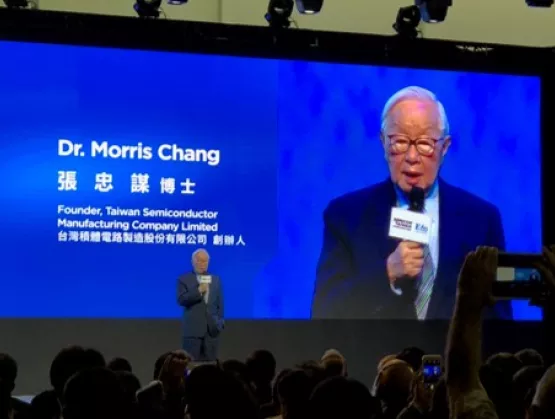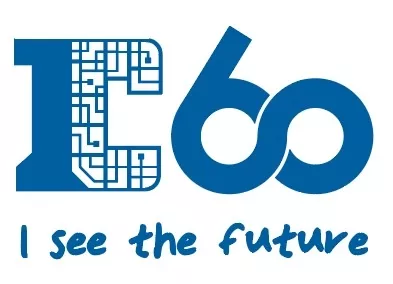
Over the past three decades, most of the world’s innovations have centered largely on business models and involved iterative advances of existing technologies, with none matching the global impact of the top 10 semiconductor industry discoveries and advances, Dr. Morris Chang, founder of TSMC and the IC foundry model, said at SEMICON Taiwan 2018 this week.
Few have as clear a perspective on the transformative power of semiconductors as Dr. Chang, founder of TSMC and father of the IC foundry model. Keynoting the IC60 Master Forum celebrating the 60th anniversary of the invention of the integrated circuit (IC), Dr. Chang listed what he considers the 10 key semiconductor industry innovation milestones since 1948:
1. Invention of the transistor by Shockley, Bardeen, and Brattain – 1948
2. Silicon transistor – 1954
3. Integrated circuit – 1958

4. Moore’s Law – 1965
5. MOS technology
- MOS FET – 1964
- Silicon gate – 1967
- CMOS – 1970
6. Memory
- DRAM – 1966
- Flash – 1967
7. Outsourced assembly and test (OSAT) – 1960s
8. Microprocessor – 1970
9. VLSI systems design – 1970-1980
- IP and design tools – 1980-present
Foundry model – 1985
Among the most consequential semiconductor advances may be yet to come, Dr. Chang said, citing innovations including artificial intelligence (AI) and machine learning, new device architectures, Extreme Ultraviolet lithography (EUV), 2.5D/3D packaging, and new materials such as graphene and carbon nanotubes.
 Dr. Chang argued that because bringing an innovation into production is immensely more expensive than proving a theory in a lab, innovators are not always the ones to implement and benefit from their novel ideas. Today, innovation costs are skyrocketing, driving more consolidation across the supply chain.
Dr. Chang argued that because bringing an innovation into production is immensely more expensive than proving a theory in a lab, innovators are not always the ones to implement and benefit from their novel ideas. Today, innovation costs are skyrocketing, driving more consolidation across the supply chain.
Michael Droeger is director of marketing at SEMI.